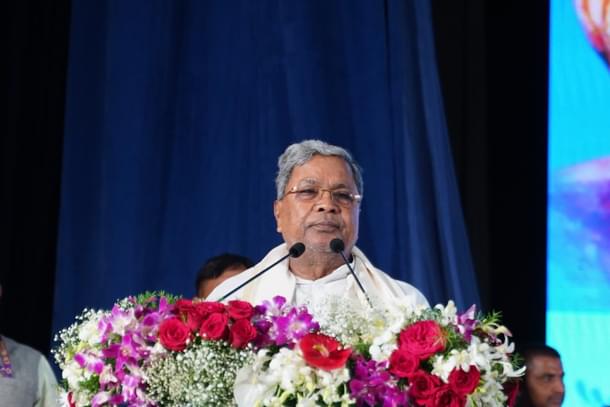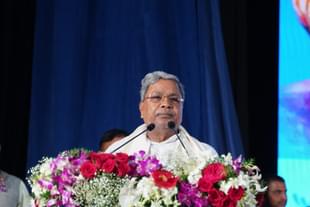News Brief
Siddaramaiah Appeals Against Governor's Sanction In MUDA Land Case, Karnataka High Court To Hear On 23 November
Arjun Brij
Nov 14, 2024, 03:10 PM | Updated 03:10 PM IST
Save & read from anywhere!
Bookmark stories for easy access on any device or the Swarajya app.


The Karnataka High Court will hear on 23 November the appeal filed by Chief Minister Siddaramaiah challenging the Governor’s decision to grant sanction for his prosecution in the alleged Mysore Urban Development Authority (MUDA) scam.
The appeal follows a ruling by a single-judge bench in September that dismissed Siddaramaiah's plea challenging the sanction for his prosecution, which had been granted by Karnataka Governor Thawar Chand Gehlot.
Siddaramaiah, represented by senior counsel Abhishek Manu Singhvi, filed the appeal after the 24 September order. Today (14 November), Singhvi mentioned the appeal before a bench consisting of Chief Justice NV Anjaria and Justice KV Aravind.
Singhvi requested an urgent hearing, and the bench agreed to list the matter on 23 November. The case involves allegations of corruption relating to land allotment by MUDA to Siddaramaiah’s wife, Parvathi.
According to the complaint, Parvathi was ‘gifted’ a plot of land, slightly over three acres in size, by her brother Mallikarjuna Swamy. This land had been initially acquired and then de-notified before being bought by Swamy. Despite the land being privately owned, it was developed by MUDA.
Swamy, in his statement, claimed to have bought the land in 2004 and subsequently gifted it to his sister. However, the land was allegedly developed illegally by MUDA.
In response, Parvathi sought compensation, and she is said to have received an inflated compensation package, which allegedly included 14 alternate plots of land. These alternate plots were reportedly much more valuable than the original plot of land.
On 26 July this year, following private complaints from activists TJ Abraham, Snehamayi Krishna, and Pradeep Kumar SP, the Karnataka Governor sanctioned the filing of a corruption case against Siddaramaiah.
The activists alleged corruption in the land allotment process and accused Siddaramaiah of using his position as a public servant to benefit his wife. In his petition, Siddaramaiah argued that MUDA had made its decision independently and that he had no involvement or influence over the compensation process.
He further contended that the Governor’s decision to sanction the prosecution under Section 17A of the Prevention of Corruption Act was made without proper consideration and was “mala fide.” He claimed that the sanction was issued without a clear and reasonable application of mind.
However, the single-judge bench of Justice M Nagaprasanna, on 24 September, dismissed Siddaramaiah’s petition and upheld the Governor’s sanction. In the ruling, Justice Nagaprasanna noted that the Governor's decision to grant prosecution sanction was valid and in accordance with the law.
Following this, the Karnataka Lokayukta filed an FIR against Siddaramaiah, along with three other individuals, on charges of corruption, cheating, and forgery related to the allotment of MUDA sites.
In his appeal, Siddaramaiah has challenged the single-judge bench's order, claiming that the decision to grant prosecution sanction was improper. He has made the Governor’s office, along with the complainants—activists TJ Abraham, Snehamayi Krishna, and SP Pradeep Kumar—respondents in the appeal.
Arjun Brij is an Editorial Associate at Swarajya. He tweets at @arjun_brij





